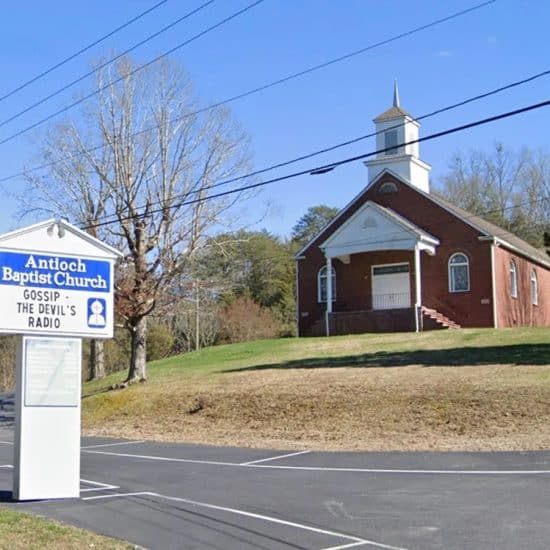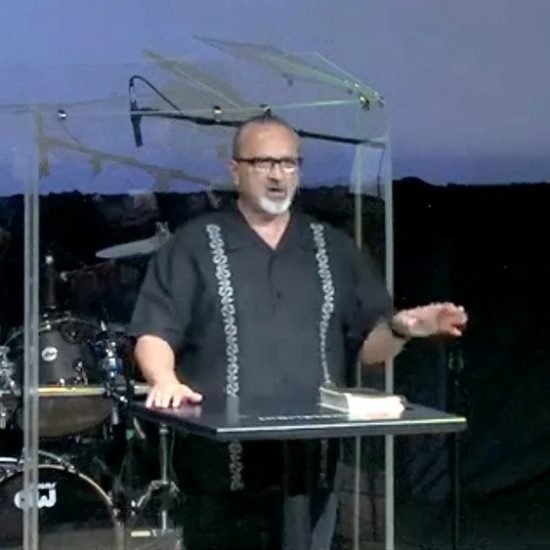The killing of senior pastor Fred Winters while he preached during the early service Sunday at First Baptist Church of Maryville, Ill., 20 miles northeast of St. Louis, was a terrible tragedy.
 |
Winters, 45, husband and father of two daughters, had been pastor of the congregation for nearly 22 years. Under his leadership, the church had grown from 32 members to 1,200. The church’s Web site lists nine other staff members, but Winters remained distinguished by the same good-natured, personal touch he had employed throughout his tenure as pastor.
The affable leader was visible in the growing community of 7,000 residents and among his parishioners. He still held Pizza with the Pastor get-togethers, reportedly a way to help members and non-members get better acquainted with the church, Winters and his family.
The pastor had long been active in the life of the Illinois Baptist State Association, and he recently served two years as the state convention president, finishing his second term when the organization celebrated its centennial during its 2007 annual meeting. He also served on the Southern Baptist Committee on Committees.
The shooting occurred in the sprawling brick structure Winters led the church to build in what initially was an open cornfield. Since then, housing development have sprung up on all sides.
Violence is happening more frequently in houses of worship across the country. Victims have included ministers, but lay members have been casualties of targeted and random violence — usually shootings. Some attacks have been extensions of domestic violence carried out in church facilities.
Severely disgruntled people sometimes inflict their wrath in a congregational setting. The disgruntled can have one of hundreds of reasons for their dissatisfaction but obviously no real justification for violent attacks.
Another possibility is the one that may have come into play in the Winters shooting. The day after the incident, prosecutors charged Terry Sedlacek, 27, with first-degree murder and aggravated battery. While police did not comment on a motive, a St. Louis Post-Dispatch report said last year that Sedlacek suffers from mental illness, apparently brought on by Lyme disease-induced brain damage.
At press time, Sedlacek was being held without bond and hospitalized for the wounds he suffered by trying to hurt himself with a knife after he shot the pastor and during a scuffle with parishioners who tried to subdue him. Two members received knife wounds in the struggle.
The attack raises again the question about what precautions churches should take to protect members from the cradle to the oldest members, the congregation’s staff and church property itself.
There are no absolute protections, of course, if for no other reason than the church is in the people business. One could argue that people are the most unpredictable of all God’s creation. And they have the power to inflict massive harm to property and to other people.
Churches have a natural apprehension about implementing tight security procedures and developing contingency plans for when the unexpected happens. Traditionally, church buildings have been regarded as places of safety, acceptance and refuge. But that is no longer automatic — if it ever was.
Church people tend to be very trusting, and that often makes them naive about potential dangers. “What happened in Maryville will never happen here,” some might say. But when members of Fred Winters’ church return to worship in the sanctuary, many will be particularly alert to what is happening around them. What couldn’t happen there — did. It could happen anywhere.
The world still needs safe places, especially because there seem to be more dangers, more pressures and more evil the in the world than ever before. That’s why churches would do well to have their policies for staff and volunteers strengthened, building security tightened and emergency plans for any number of calamities developed and rehearsed.
Any number of security companies offer such services, from doing security assessments to helping congregations set up procedures and precautions to help ensure protection.
Local law enforcement officers regularly make presentations to groups in their communities. Increasingly, insurance companies that offer liability insurance to congregations wisely are making resources available to not only cut down on claims but to help ensure the safety of clients and their property.
Remember the folks at Maryville. As the church Web site suggests, pray for the Winters family, others who were injured, the church, Sedlacek and his family.
Bill Webb is editor of Word&Way.






